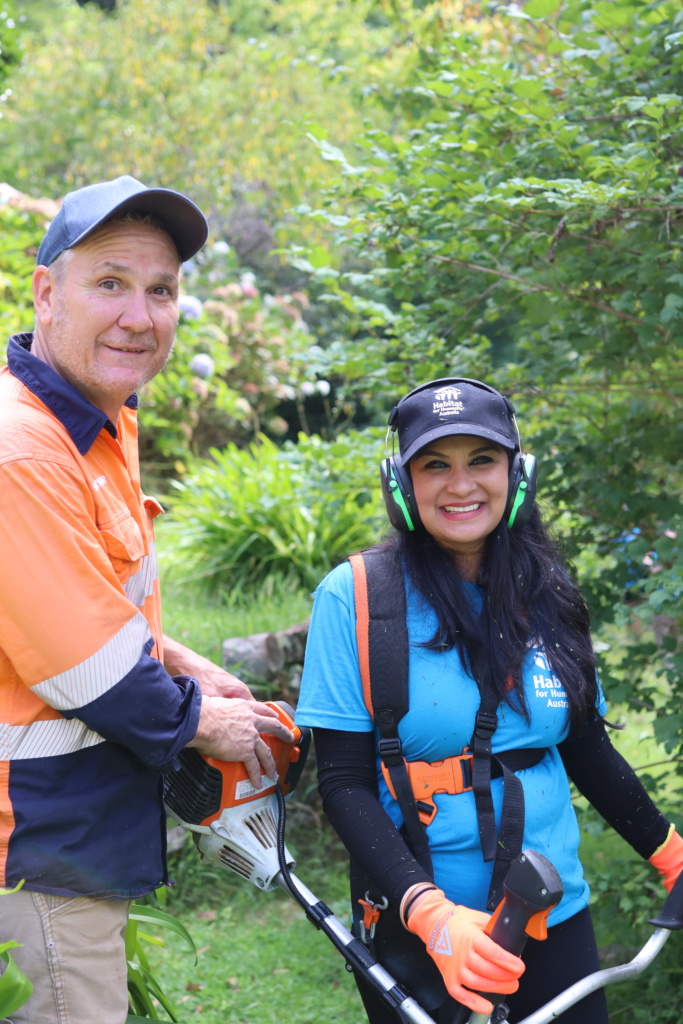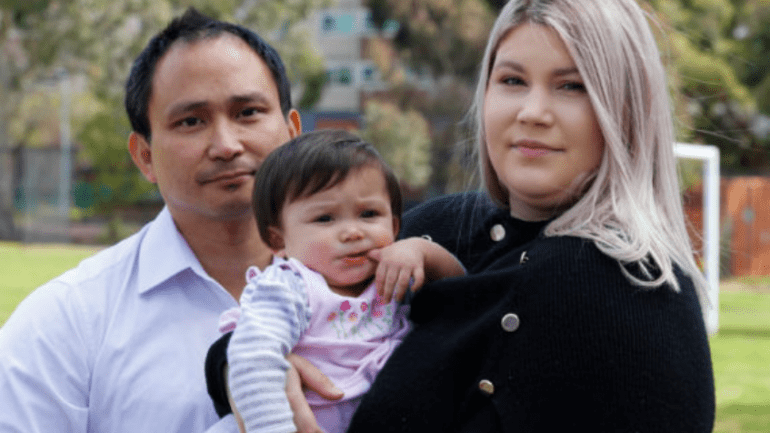
“We are so grateful that so many people came out and they’ve done a brilliant job. Absolutely brilliant. We’re just blown away by how hard they’ve worked…”
The impact of bushfires on Australian communities is devastating, and volunteers play a crucial role in supporting those affected. Habitat Australia’s Bushfire Resilience program is an essential initiative that helps communities prepare and respond to bushfires and leaves a lasting impact.
Often the people we assist may be unable to independently prepare their property in a way that sufficiently reduces risk to their home.
With a team of volunteers from Munich Re, we recently headed out to the Blue Mountains to assist Milly and Pat in clearing their land. Prior to the last major bushfires in their area, Milly and Pat had a fire path cleared to allow for emergency access/exit in the case that the fire reached their doorstep. Thankfully this was never used.
However, due to extreme weather in the last few years, including excessive rain and flooding, hazard reduction activities have been postponed across New South Wales. Vegetation quickly grew back at Milly and Pat’s and more than doubled in volume.
Our volunteers were able to make a massive impact in just a few hours, for which Milly and Pat were extremely thankful.
“The risk is quite high here,” said Milly, “and just to have this done, helps to protect our property and our neighbours’ property too.”
The Bushfire Resilience Program
Bushfires have been a natural part of Australia’s landscape for millions of years. However, in recent times, the pattern of bushfires has changed with shattering effects on Australian communities, both physically and emotionally.
Climate change is a significant factor. In the lead up to the massive 2019-20 fires there had been an extended period of drought, exacerbating the severity of the disaster.
Experts now warn that the unusual sequence of three wet La Nina climate events from 2021-2023 will mean additional fuel for bushfires the next time hot and dry conditions return – which could be as early as the 2023-24 if El Nino occurs.
The impact of bushfires on Australian communities is significant with homes and properties destroyed, loss of human and animal life, and the destruction of natural habitats leading to long-term ecological consequences.
If you would like to volunteer on our Bushfire Resilience program visit our helping hands website here; https://volunteer.habitat.org.au/. Your help will make a dramatic difference in the lives of others.
Habitat for Humanity’s Bushfire Resilience program is supported through joint Commonwealth/State Disaster Recovery Funding Arrangements. Although funding for this product has been provided by both the Australian and NSW Governments, the material contained herein does not necessarily represent the views of either government”.




